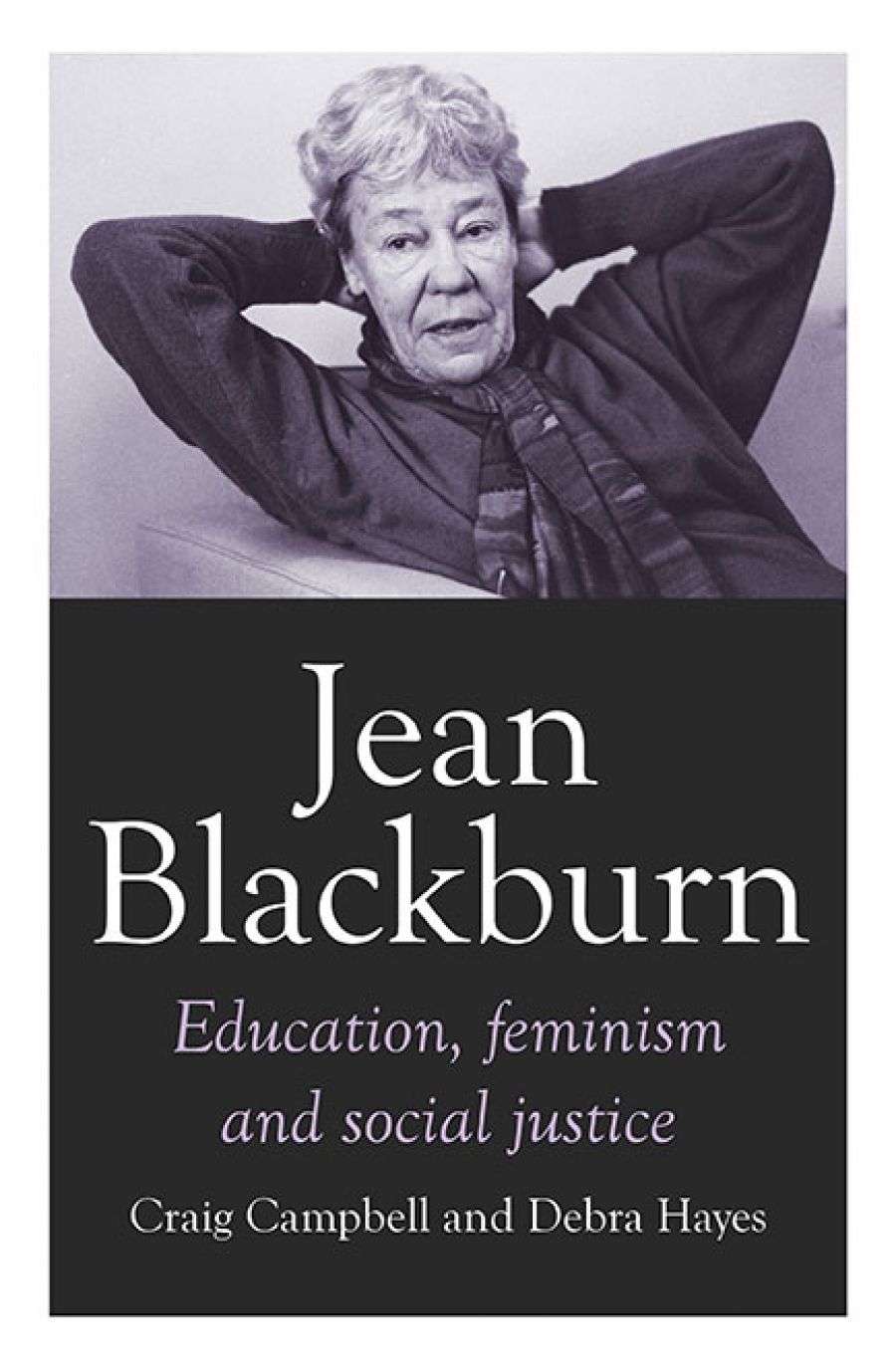
- Free Article: No
- Contents Category: Memoir
- Review Article: Yes
- Online Only: No
- Custom Highlight Text:
In the foundation Jean Blackburn Memorial Lecture in 2014, David Gonski observed that Australian schooling was unfairly funded – that the money wasn’t going where it was needed. To our national shame, this is not a new phenomenon. Successive governments in Australia have adopted school-funding policies for ...
- Grid Image (300px * 250px):

- Alt Tag (Grid Image): Ilana Snyder reviews 'Jean Blackburn: Education, feminism and social justice' by Craig Campbell and Debra Hayes
- Book 1 Title: Jean Blackburn
- Book 1 Subtitle: Education, feminism and social justice
- Book 1 Biblio: Monash University Publishing, $34.95 pb, 458 pp, 9781925835274
This absorbing book examines the life of probably the most influential female educator in Australian history, who had a major impact on the transformation of school education in the last three decades of the twentieth century. Jean Blackburn was a woman with a fierce intellect, who was a notable scholar, a courageous and creative thinker, and a compassionate and inspiring advocate of reform.
Born in 1919, into a working-class family and a home devoid of books, dominated by a tyrannical and parsimonious father and an eventually supportive mother, Jean Muir secured a place at University High School and then at the University of Melbourne, where she took out a degree in Economics in 1941. At university, she joined the Labor Club and the Communist Party, which was a crucial factor in her intellectual development.
In 1943, she married Dick Blackburn, son of the redoubtable Maurice Blackburn, and went to live in Adelaide where she raised her three children while teaching, studying, and immersing herself in democratic socialist and feminist thinking. It wasn’t until 1969, at age fifty, that her career as an educational reformer really took off, when she was appointed as research secretary to an inquiry into education in South Australia. It marked the beginning of a working partnership with Peter Karmel, economist and vice-chancellor of the ANU, who observed that the ‘extremely intelligent’ Blackburn ‘wants kids to emerge from school who can read and write and reason’.
Karmel made sure that Blackburn was appointed to the Australian Schools Commission in 1974 as an inaugural Schools Commissioner. Blackburn’s work, especially through her responsibilities for the flagship Disadvantaged Schools Program (DSP), had immediate and enduring success in establishing new policy settings for addressing inequality in education.
Blackburn described the early years of the Schools Commission as ‘just about the most exciting time that there has been in the history of Australian education’. The Commission gave her the opportunity to create a vision for schooling in a democratic society. To develop policy related to the schooling of women, the Commission established a group chaired by Professor Ken McKinnon that included Blackburn and many well-known feminists of the day. In 1975, Girls, School and Society was produced, a revolutionary document that underwrote efforts to reduce inequalities by improving and expanding the education of girls.
Blackburn’s contribution continued when she was invited in 1983 by the Cain Labor government in Victoria to tackle one of the toughest issues in education: how to make an effective certification process that marks the end of secondary schooling. The Blackburn Report was released in 1985. It was broadly accepted in Victoria and developed national significance influencing reform in other states and territories.
By the end of the 1980s, neoliberal reforms were taking hold in education, and Blackburn found herself outflanked on education policy, though she still had several significant appointments in the early 1990s including the foundation Chancellor of the University of Canberra. She died in 2001.
Blackburn was a shining example of leadership in policy advice at a time when there were few women in senior executive positions. But she was also a woman of her era who had to manage her responsibilities as a mother and as a wife, grapple with bouts of depression, and negotiate the male-dominated policy environments in which she worked to achieve progressive reform.
This meticulously researched book, with a thorough index and some intriguing black-and-white photos, will inform and inspire others who choose to continue Jean Blackburn’s work, those who see quality education as young people’s fundamental right to develop their talents and equip them for a successful and constructive working life.


Comments powered by CComment